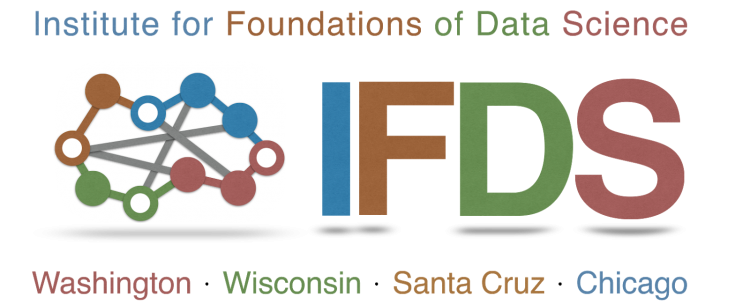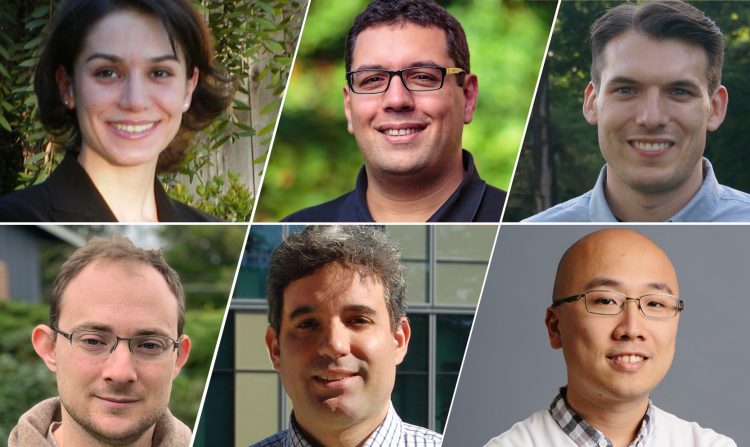
Researchers at the University of Washington will lead a team of universities in creating the Institute for Foundations of Data Science (IFDS) to tackle important theoretical and technical questions in the field. Supported by a $12.5 million, five-year grant from National Science Foundation, IFDS is one of two institutes nationwide to receive funding from the latest phase of the agency’s Transdisciplinary Research in Principles of Data Science (TRIPODS) program.
The IFDS — a collaboration between UW and the Universities of Wisconsin-Madison, California Santa Cruz and Chicago — brings together theoretical computer scientists, mathematicians and statisticians to continue the study of complex and entrenched problems in data science. Together, they aim to create scalable and robust algorithmic tools that can read the unprecedented growth of large datasets, ultimately accelerating the pace of science and engineering.
“As data science is increasingly incorporated in all facets of our lives, its success is uncovering pressing challenges that call for new theories,” said lead principal investigator Maryam Fazel, a professor in the UW Department of Electrical & Computer Engineering and adjunct professor in the Allen School, in a UW News release. “We need the expertise of all core disciplines to understand the mysteries and to address the pitfalls of data science and artificial intelligence algorithms.”
In 2017, Fazel and professor Sham Kakade, who holds a joint appointment in the Allen School and Department of Statistics, led the UW’s successful proposal to establish the Algorithmic Foundations of Data Science Institute (ADSI). They received a $1.5 million award from NSF’s TRIPODS. Three UW teams subsequently earned TRIPODS-X grants in 2018 designed to expand their original work to broader areas of science, engineering and mathematics.
“Phase II is a scaled-up version of phase one,” said co-principal investigator Yin Tat Lee, a professor in the Allen School’s Theory group. “It involves more students and more PIs, which will foster more collaborations between facilities in different areas. It supports us to visit other TRIPODS partners, to get new kinds of research going.”

UW researchers have already hosted workshops and hackathons to recruit more diverse participants to the field. Their continued mission is to improve accuracy and decrease bias in algorithmic decision making processes, as well as methods to cope with ever-changing data that may be corrupted by noise or even malicious intent.
“One thrust of the TRIPODS phase II program that I’m particularly excited about aims to advance the understanding and practice of closed-loop learning. In this paradigm of data science, data collection and inference feed off of each other so that inferences on past data inform what data should be collected next,” said co-principal investigator and Allen School professor Kevin Jamieson. “A well-executed closed-loop learning protocol can often accomplish data science tasks using just a small fraction of the data necessary for traditional methods. This can accelerate the discovery of novel materials or medicines, and our ability to learn useful machine learning models to predict things like health outcomes from a given treatment.”
Jamison added that even small advances in collecting data more efficiently and smarter could have huge aggregated benefits across many fields because the algorithms ADSI develops are broadly applicable across disciplines.
“While the last decade has enjoyed an embrace and democratization of machine learning and AI across fields like biology, chemistry, and even physics, tools for helping these practitioners collect dataset are essentially nonexistent,” he said. “One of the aims of the close-loop data thrust is to develop these tools.”
In addition to Fazel, Kakade, Lee and Jamieson, participants in the UW IFDS include professor Dmitriy Drusvyatskiy of the UW Department of Mathematics, Zaid Harchaoui, professor of statistics and adjunct faculty member in the Allen School and Abel Rodriguez, who recently arrived from UC Santa Cruz to serve as diversity liaison for the IFDS.
Read the NSF’s announcement here and the UW News release here.

